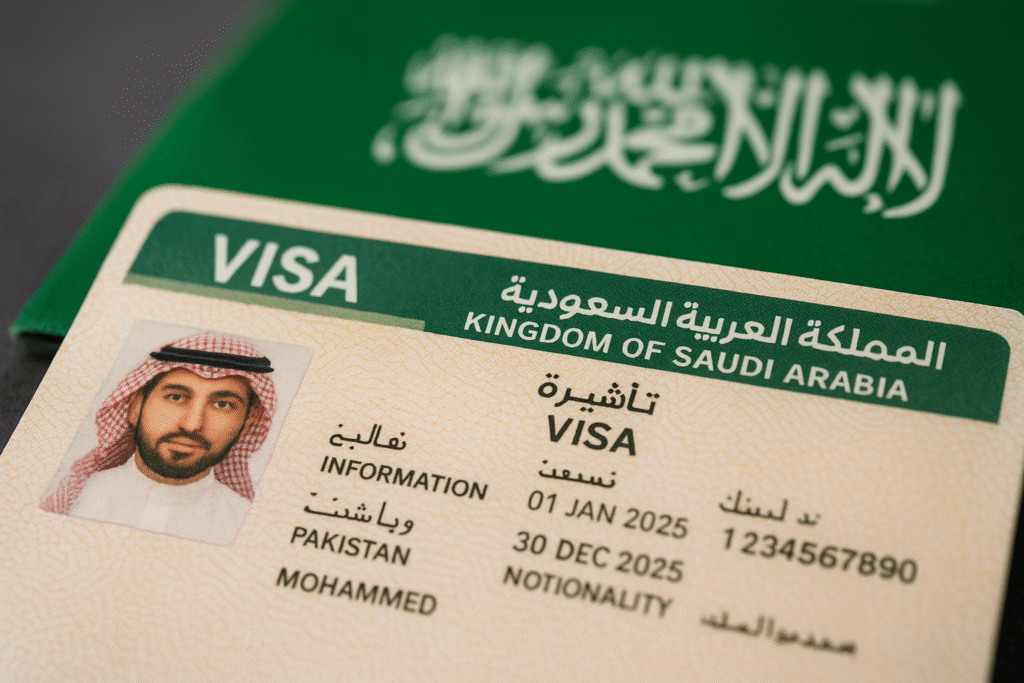Saudi Arabia has been evolving its visa, work permit, and immigration rules rapidly in line with Vision 2030. Here are the key changes and what you need to know if you’re planning to travel, work, or move there soon.
Key Updates
- New Skill-Based Classification System for Foreign Workers
- As of July 1, 2025 (new hires) and from mid-June 2025 for existing expatriates, Saudi Arabia introduced a three-tier skill classification for foreign workers: High-skilled, Skilled, and Basic.
- This replaces the older “professional / non-professional” model. The classification is based on criteria like education, experience, salary, and sometimes age.
- Employers must classify expatriate roles via the Qiwa platform and ensure employees’ records are updated accordingly. Misclassification can lead to penalties.
- Temporary Work Visas (TWVs): Pauses & Resumptions
- There was a pause on issuing new TWVs (temporary work visas) starting 28 April 2025.
- The pause has been lifted for many nationalities, but for some (e.g. Ethiopian nationals) the pause remains.
- Visit / Tourism / Family-Visit Visas
- Earlier in 2025, there was a short-term suspension of new visit, tourism, and family-visit visas for nationals of certain countries (Algeria, Bangladesh, Egypt, India, Indonesia, Iraq, Jordan, Morocco, Nigeria, Pakistan, Sudan, Tunisia, Yemen) during Hajj season etc.
- Since then, many of those suspensions have been lifted. Visit visas are again being issued, though often as single-entry visas (up to 90 days).
- Grace Period Extensions
- Saudi Arabia has given a 30-day extension to people with expired visit visas so that they can exit the country legally without penalties.
- Visa / Entry Documentation & Requirements
- For certain categories (tourist e-Visa, visas on arrival, etc.), passport validity of at least 6 months is needed.
- Applicants generally use online platforms for many visa types (including e-Visa for tourism), but business/work visas often require sponsor/employer and more documentation, plus classification under new skill tiers.
Impacts & What To Watch Out For
- For Employers: If your business in Saudi Arabia employs foreign workers, it’s especially important now to align with the new classification rules. You’ll need to ensure job roles are properly categorized in Qiwa, records updated, and comply with Saudization, wage protection, etc.
- For Prospective Workers: Qualifications, experience, salary will affect which skill tier you fall into, which influences visa eligibility, benefits (e.g. whether you can sponsor family, residency duration), etc.
- For Tourists / Family Visits: Some earlier restrictions are easing, but not all. It’s still possible that nationals of certain countries may have special requirements or delays. Always check in advance.
- Legal Stayers: If your visa expired, the grace period extension is helpful—but you should use the time to legalize your status or leave. Overstays can lead to fines, bans.
What Still Remains Unclear / Under Transition
- Full details on renewals, or how transitions between categories (e.g. moving from Basic to Skilled or High-skilled) will work in practice are still being refined.
- For certain nationalities, it’s not always obvious when the visa issuance is fully restored, or which specific visa types still have suspension or restrictions.
- Some enforcement is increasing (residency, labor, border laws). Over 21,000 people were arrested recently in one week for violations of residency, overstaying visas, illegal entry etc.
Practical Tips
- Check official Saudi govt sources (Ministry of Human Resources, Visas & Passports authorities, etc.) in your country to see if your nationality has particular rules.
- Ensure your qualification documentation is well prepared (degrees, experience letters, salary verification) to match what Saudi authorities require under the new classification system.
- Employer coordination is critical: many visa/work permit steps are handled by the employer via Qiwa or other platforms.
- Keep your passport valid (at least 6 months), follow exit/re-entry permit rules if you hold Iqama.
- Don’t overstay. Take advantage of grace periods if available; apply for extensions or exit as needed.
Conclusion
Saudi Arabia’s visa landscape is changing substantially in mid-2025. The move toward classifying work permits by skill, lifting and reinstating suspensions, more structured requirements, and stronger enforcement are all part of a broader effort to manage immigration, attract foreign talent, and support national employment goals under Vision 2030.
If you plan to travel there, work there, or move your family, now is a good time to double check the latest rules, ensure documentation is in order, and possibly get professional help for work visas or long-term stays.
If you find the process overwhelming or simply want professional guidance, don’t hesitate to reach out to Sharifa Projects Management. Our team is here to assist you with every step of processing and obtaining your Saudi Arabia visa smoothly and efficiently.
